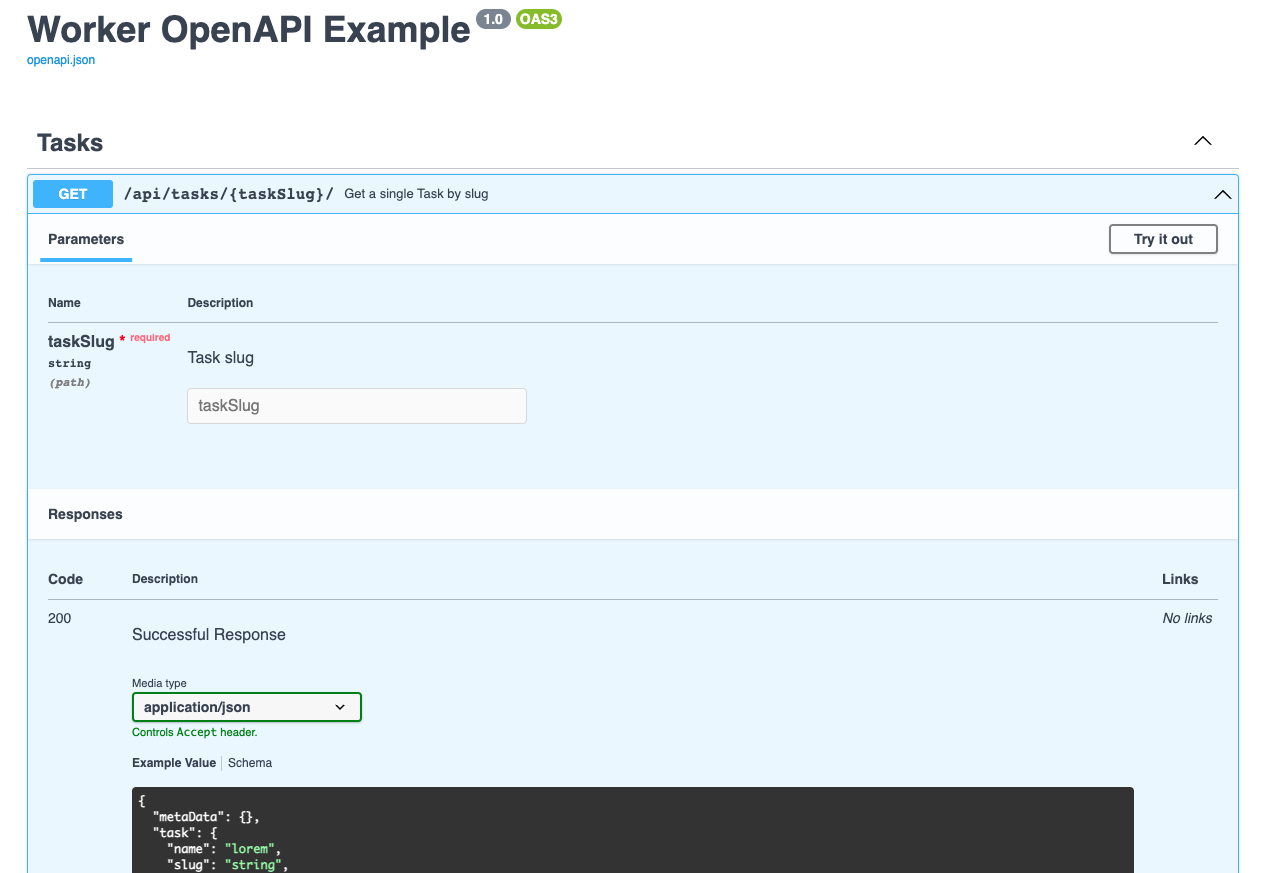OpenAPI 3 and 3.1 schema generator and validator for Cloudflare Workers
Documentation: https://cloudflare.github.io/itty-router-openapi/
Source Code: https://github.com/cloudflare/itty-router-openapi/
itty-router-openapi is a library that extends itty-router, a powerful and lightweight routing system for Cloudflare Workers, already familiar to many developers, and adds an easy-to-use and compact OpenAPI 3 and 3.1 schema generator and validator.
itty-route-openapi can also have class-based routes, allowing the developer to quickly build on top of and extend other endpoints while reusing code.
The key features are:
- OpenAPI 3 and 3.1 schema generator
- Parameter type hint and type check in typescript
- Query, Path, Request Body and Header validator
- Fully written in typescript
- Class-based endpoints
- Out of the box OpenAI plugin support
- Drop-in replacement for existing itty-router applications
A template repository is available at cloudflare/workers-sdk, with a live demo here.
This framework built on top of itty-router and extends some of its
core features, such as adding class-based endpoints. It also provides a simple and iterative path for migrating from old
applications based on itty-router.
Building APIs and maintaining good documentation on the parameters and fields of your API hard. However, there is an open standard that makes this documentation process much more effortless, called OpenAPI.
OpenAPI "defines a standard, language-agnostic interface to RESTful APIs which allows both humans and computers to discover and understand the capabilities of the service without access to source code, documentation, or through network traffic inspection." This allows other machines to reliably parse those definitions and use the remote APIs easily, without additional implementation logic.
Some of the top requirements for Radar 2.0 were having better API documentation, improving the deployment lifecycle with end-to-end testing, and making it publicly available to Cloudflare customers. OpenAPI support quickly jumped out as the obvious choice to help us on all these fronts.
However, we struggled to find an existing OpenAPI framework that checked all our boxes:
- Easy integration with Cloudflare Workers
- Input validation for endpoints parameters
- Actual code-based schema generation (not just generated from comments or manually)
Since we couldn't find anything that suited us, as many engineers do, we opted for the second-best alternative: building our own and open-source it.
Get started fast using the create-cloudflare command line, just run this command to setup an initial project with
some example routes:
npm create cloudflare@latest hello-world -- --type openapi
---> 100%Then to start the local server just run
cd hello-world
wrangler devnpm i @cloudflare/itty-router-openapi --save
---> 100%Let's create our first class-based endpoint called TaskFetch in src/tasks.ts now.
Make sure that ‘Task' is global, otherwise you must redefine responses.schema.task with every endpoint.
When defining the schema, you can interchangeably use native typescript types or use the included types to set required flags, descriptions, and other fields.
import {
OpenAPIRoute,
Path,
Str,
DateOnly,
DataOf,
} from '@cloudflare/itty-router-openapi'
const Task = {
name: new Str({ example: 'lorem' }),
slug: String,
description: new Str({ required: false }),
completed: Boolean,
due_date: new DateOnly(),
}
export class TaskFetch extends OpenAPIRoute {
static schema = {
tags: ['Tasks'],
summary: 'Get a single Task by slug',
parameters: {
taskSlug: Path(Str, {
description: 'Task slug',
}),
},
responses: {
'200': {
description: 'Task fetched successfully',
schema: {
metaData: {},
task: Task,
},
},
},
}
async handle(
request: Request,
env: any,
context: any,
data: DataOf<typeof TaskFetch.schema>
) {
// Retrieve the validated slug
const { taskSlug } = data.params
// Actually fetch a task using the taskSlug
return {
metaData: { meta: 'data' },
task: {
name: 'my task',
slug: taskSlug,
description: 'this needs to be done',
completed: false,
due_date: new Date().toISOString().slice(0, 10),
},
}
}
}Now initialize a new OpenAPIRouter, and reference our newly created endpoint as a regular ‘itty-router’ .get route:
import { OpenAPIRouter } from '@cloudflare/itty-router-openapi'
import { TaskFetch } from './tasks'
const router = OpenAPIRouter()
router.get('/api/tasks/:taskSlug/', TaskFetch)
// 404 for everything else
router.all('*', () => new Response('Not Found.', { status: 404 }))
export default {
fetch: router.handle,
}Finally, run wrangler dev and head to /docs our /redocs with your browser.
You'll be greeted with a beautiful OpenAPI page that you can use to test and call your new endpoint.
Pretty easy, right?
itty-router-openapi aims to be at the core of new APIs built using Workers and define a pattern to allow everyone to have an OpenAPI-compliant schema without worrying about implementation details or reinventing the wheel.
itty-router-openapi is considered stable and production ready and is being used with the Radar 2.0 public API.
Currently this package is maintained by the Cloudflare Radar Team and features are prioritized based on the Radar roadmap.
Nonetheless you can still open pull requests or issues in this repository and they will get reviewed.
You can also talk to us in the Cloudflare Community or the Radar Discord Channel












